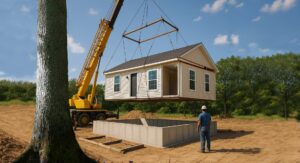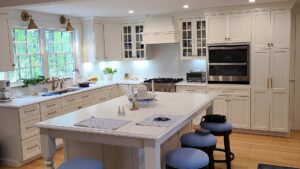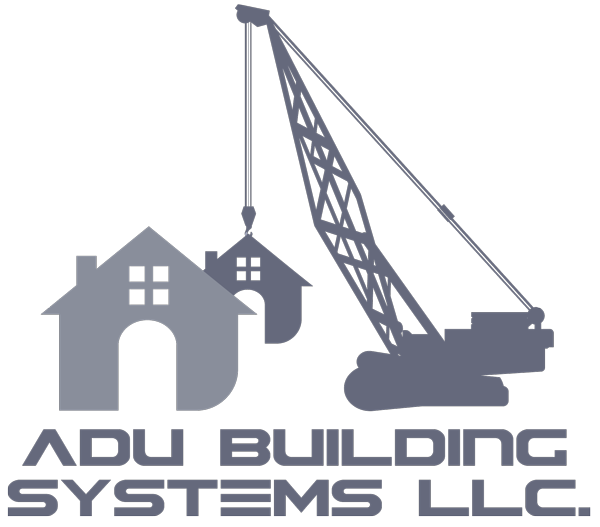Is Building an ADU the Right Move for Your Property? A Decision-Making Checklist for Massachusetts Homeowners
 More Massachusetts homeowners are considering Accessory Dwelling Units (ADUs) as a way to add useful space without relocating. These compact living spaces are becoming more common thanks to updated zoning rules, increased housing demand, and rising property values. Whether the goal is to support a family member, create a rental unit, or improve home flexibility, building an ADU can offer practical benefits.
More Massachusetts homeowners are considering Accessory Dwelling Units (ADUs) as a way to add useful space without relocating. These compact living spaces are becoming more common thanks to updated zoning rules, increased housing demand, and rising property values. Whether the goal is to support a family member, create a rental unit, or improve home flexibility, building an ADU can offer practical benefits.
At ADU Building Systems, LLC, we help homeowners across the state assess whether an ADU fits their needs and property. If you’re thinking about building an ADU, here’s a checklist to help guide your decision.
Do You Need More Space—But Don’t Want to Move?
Homeowners often consider ADUs when their current home no longer meets their needs. Maybe a parent is moving in, or a young adult needs a private space. In other cases, families want to create a guest suite or home office.
Compared to buying a larger home or renting a second property, building an ADU can be more cost-effective. You stay in the neighborhood you love while gaining extra living space. Our team works with you to plan a unit that fits your situation and avoids the high costs of moving.
Does Your Property Qualify for Building an ADU?
Not every property in Massachusetts is eligible for an ADU, but many are. Important factors include your lot size, yard layout, existing structures, and access. Each town has different rules. For example, cities like Cambridge and Somerville are known for having ADU-friendly zoning policies.
Our team reviews your site and local regulations to determine what type of ADU is allowed. We handle zoning research, permitting, and design reviews so you don’t have to navigate that process alone.
Are You Comfortable With a Construction Timeline?
Homeowners should understand the time it takes to build an ADU. From design to delivery, the process can take a few months depending on the size and location of the unit. However, modular construction significantly shortens this timeline.
At ADU Building Systems, we use modular methods to save time and reduce on-site disruption. Our factory-built approach helps you move from planning to finished unit more efficiently. We also provide turnkey service, which means we manage each step of the project from start to finish.
Are You Hoping for Extra Income or Long-Term Value?
Building an ADU is not only a way to solve immediate space problems—it can also provide ongoing financial benefits. Many homeowners rent out their ADUs to generate income. In high-demand markets across Massachusetts, a well-located ADU can bring in significant funds.
ADUs can also boost resale value. A professionally built unit that meets local codes may increase a property’s overall value by up to 30%. We work with homeowners to design rental-ready or resale-ready layouts that meet local guidelines and market demands.
Do You Have a Budget—and a Plan to Stick to It?
 Budget is often a deciding factor. The cost of building an ADU depends on the type—detached, attached, or converted—as well as the materials, finishes, and site conditions. Our modular builds reduce many of the expenses tied to traditional construction. We avoid common delays and reduce material waste, which helps keep your project within your planned budget.
Budget is often a deciding factor. The cost of building an ADU depends on the type—detached, attached, or converted—as well as the materials, finishes, and site conditions. Our modular builds reduce many of the expenses tied to traditional construction. We avoid common delays and reduce material waste, which helps keep your project within your planned budget.
We help you compare layout options and costs during the design phase. You’ll get a clear picture of pricing, timelines, and what to expect as we move forward.
If You’re Ready to Start, We’re Ready to Help
If you’re still wondering whether building an ADU is right for your home, this checklist can help clarify the decision. You’ll want to consider your need for space, your property layout, your budget, and your long-term goals.
At ADU Building Systems, LLC, we’re here to make the process simple. We offer full-service support—from zoning and design to factory-built delivery and finishing work. Call us at (508) 789-0634 or (339) 499-8962, or email [email protected] to schedule a consultation. We’ll help you determine if your property is a good fit and what kind of unit would serve your goals best.
